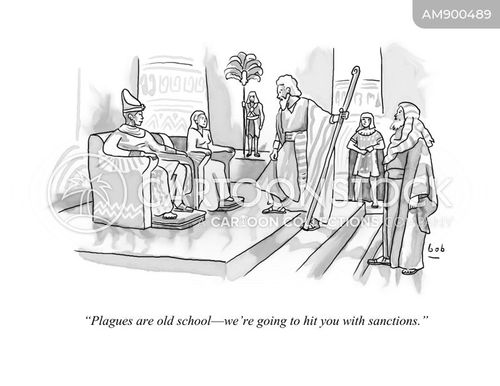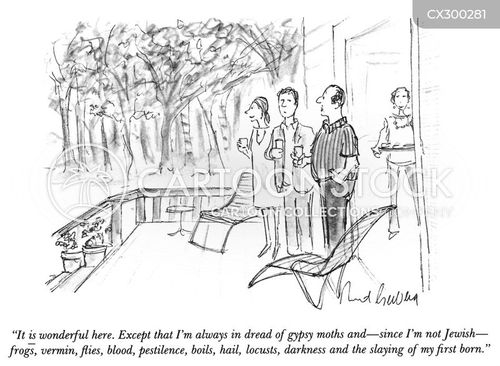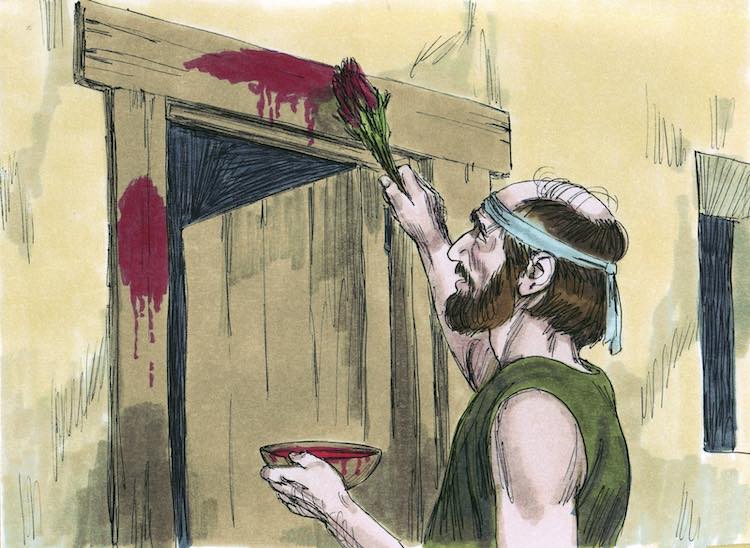Bonjour / Hello [nickname_else_first_name],
Table of contents
1) Perashat Hashavoua - Rabbi Eli Mansour
2) Halakhat Hashavoua (Halakhot related to day to day life) By Hazzan David Azerad - Laws of Tefila
3) Holy Jokes!
1)PERASHAT HASHAVOUA
This Week's Parasha Insight with Rabbi Eli Mansour
Parashat Bo- Pharaoh and His Advisors
In the beginning of Parashat Bo, we read about Moshe’s warning to Pharaoh about the eighth plague, the plague of Arbeh (locusts), that would devastate the country, consuming whatever produce remained after the hail. After Moshe and Aharon left Pharoah, the king’s servants turned to him and pleaded with him to yield. They said, "Ha’terem Teda Ki Aveda Misrayim" – that Egypt could soon be completely destroyed if he did not surrender to Moshe and Aharon and allow Beneh Yisrael to leave (10:7).
Pharaoh responded by summoning Moshe and Aharon back to the palace, and expressing his willingness to let them leave to serve G-d, as they had requested. But when Moshe and Aharon presented their demand that the entire nation – men, women and children – leave, Pharaoh refused, and angrily chased them from the palace. Soon thereafter, the plague of locusts struck.
The question arises as to why Pharaoh’s advisors remained silent at this point. What happened to their warnings about Egypt being completely destroyed? Why did they not reiterate to Pharaoh their concerns about the future of the country if he persisted in defying G-d’s command?
The Or Ha’haim Ha’kadosh (Rav Haim Ben-Attar, 1696-1743) offers an explanation by first addressing the more general question as to what Pharaoh was thinking throughout the process of the ten plagues. It is hardly conceivable, the Or Ha’haim writes, was Pharaoh was simply a fool, who acted without any reason or common sense. There must have been some rationale for why he continually refused G-d’s warning to allow Beneh Yisrael to leave, even after seeing the miraculous plagues that ravaged his country.
The Or Ha’haim answers by noting that G-d had sent Moshe and Aharon to ask that Pharaoh allow Beneh Yisrael to embark on just a three-day excursion into the wilderness, to offer sacrifices (3:18). Pharaoh considered two possible explanations of this demand. The first was that this was truly all that G-d wanted – that His people journey for three days into the wilderness, offer sacrifices, and then return to Egypt. Alternatively, however, Pharaoh thought that perhaps this was just a trick, and Beneh Yisrael in fact had no intention of ever returning (which, of course, turned out to be true). If this was the case, Pharaoh reasoned, then Beneh Yisrael’s G-d must have limited power. After all, if He was truly an omnipotent divine being, then He should not need to resort to this tactic in order to free His people from bondage. Pharaoh thus figured that if this was only a ruse, then it proved that G-d was not all-powerful, and He could be defeated.
The Or Ha’haim explains that Pharaoh assumed the second possibility – that the idea of a three-day journey into the wilderness was simply a clever tactic, proving that Beneh Yisrael’s G-d was limited. Pharaoh therefore decided to resist, figuring that G-d was limited and could thus be defeated.
But after seven miraculous plagues, Pharaoh’s servants pleaded with Pharaoh to reconsider. They pointed to the plagues as an indication that Beneh Yisrael’s G-d is, in fact, unlimited, and could thus destroy all of Egypt. Apparently, they told the king, G-d was not trying to deceive Pharaoh, and really intended only that Beneh Yisrael journey for three days into the wilderness to offer sacrifices.
Pharaoh accepted the advisors’ recommendation, and agreed to let Beneh Yisrael travel into the desert. However, once he heard Moshe and Aharon insist that even the children go, he retracted his consent. In his mind, children have no reason to participate in religious rituals, and thus the demand that the children join the trip into the wilderness proved that this was a deceitful tactic to have Beneh Yisrael leave Egypt permanently. Hence, Pharaoh returned to his previous position – assuming that this was all a trick, indicating that G-d was limited and could be defeated.
For this reason, the Or Ha’haim explains, Pharaoh’s advisors now remained silent. They had argued that G-d was truly unlimited, and that His demand was sincere, and not a ruse. Once this argument was, in Pharaoh’s mind, disproven by the insistence that even the children leave, there was no longer any reason for Pharaoh to surrender, and so he resumed his defiant stance, with the support of his advisors.
2) HALAKHAT HASHAVOUA
Halachot this week are selected and Translated by Hazzan David Azerad
Laws of Tefila according to the rulings of Maran Rabbi Obadiah Yosef ZT”L
When do we say "Baruch Hu Uvaruch Shemo"?
Generally speaking every Beracha that a person hears he should say "Baruch Hu Uvaruch Shemo” Therefore,during the Chazara (repetition) of the Amida the Chazan has to wait a bit in order for people to have enough time to respond "Baruch Hu Uvaruch Shemo" and then the Chazan can continue to finish the blessings in order for people to respond Amen.
When do we refrain from saying “Baruch Hu Uvaruch Shemo"?
Whenever one hears the following Berachot, such as Kiddush, Havdalah, Megillah, Shofar etc…because the person who hears the Beracha is considered to be doing the blessings himself, and by saying "Baruch Hu Uvaruch Shemo "it is an Hefsek an interruption in the Beracha.Therefore he should hear the Beracha and say nothing only Amen at the end.
Bevirkat Shabbat Shalom Umevorach
David Azerad
3) HOLY JoKeS!!
Selection of funny snippets, loosely related to this weeks parashah or current events, to brighten your day











